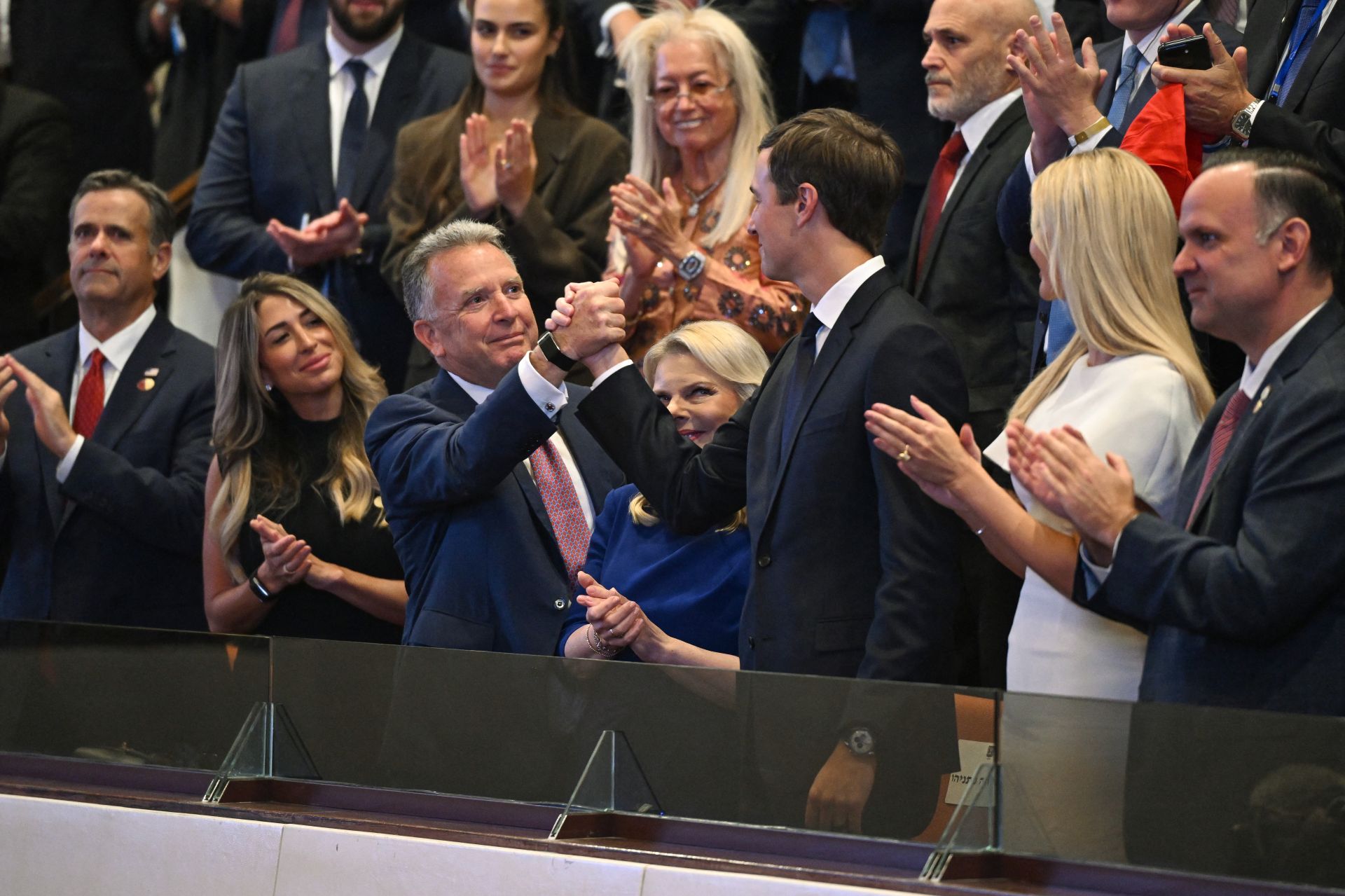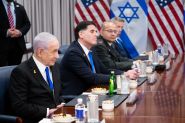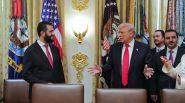- Home
- Middle East
- Kushner and Witkoff Reveal How the Israel-Hamas Ceasefire Was Brokered

US Special Envoy Steve Witkoff (-L) and US president's son-in-law Jared Kushner clasp hands while being recognised before a speech by the US president at the Israeli parliament, the Knesset, in Jerusalem on October 13, 2025. ©AFP
In a high-profile interview on CBS’s 60 Minutes, Jared Kushner and Steve Witkoff – President Donald Trump’s envoys – defended their role in brokering the recent ceasefire between Israel and Hamas, and responded to criticism over potential conflicts of interest tied to their extensive business dealings in the Gulf.
Diplomacy Through Unconventional Channels
Kushner and Witkoff were given an unusual level of authority by Trump to engage directly with Hamas, despite the organization’s designation as a terrorist group by the U.S. government. The move, which circumvented traditional State Department channels, was critical in reaching the October ceasefire agreement that included the release of Israeli hostages and a halt to Israeli military operations.
The turning point in the negotiations came after a controversial Israeli airstrike in Doha killed six individuals — including the son of Hamas’s chief negotiator, Khalil al-Hayya — and nearly derailed the talks. The fallout was mitigated by a phone call President Trump arranged between Israeli Prime Minister Benjamin Netanyahu and Qatari Prime Minister Mohammed bin Abdulrahman Al Thani, in which Netanyahu offered a rare diplomatic apology.
“The apology needed to happen,” Witkoff said. “We were not moving forward without it.”
According to the envoys, Qatar’s involvement was pivotal due to its influence over Hamas and its key role in facilitating humanitarian aid to Gaza. Without the support of Doha, the ceasefire architecture would have collapsed.
Economic Stakes and Accusations of Conflict of Interest
Kushner and Witkoff’s involvement raised immediate concerns over ethics and potential self-dealing. Both men have longstanding financial ties in the Gulf — Kushner through his Affinity Partners investment fund, which has received substantial backing from Saudi Arabia, and Witkoff through extensive real estate and hospitality investments in the region.
When pressed on whether their diplomatic work was overlapping with their financial interests, Kushner was dismissive.
“No one has pointed out any instance where we pursued any policy not in the interest of the United States,” he told 60 Minutes. “We can’t spend our time focused on perception as much as we have to focus on the facts.”
Witkoff added that he had formally divested from his businesses, receives no government salary, and covers his own expenses. Still, interviewer Lesley Stahl noted that Witkoff’s family remains active in Gulf investments.
Kushner characterized their private-sector backgrounds as assets, not liabilities: “What people call conflicts of interest, Steve and I call experience and trusted relationships.”
Changing the Calculus
Trump’s ceasefire plan, announced at a White House meeting with Netanyahu, called for an immediate halt to fighting and the release of all Israeli hostages. But Hamas remained wary, fearing that once hostages were released, Israeli attacks would resume.
Convincing Hamas that holding hostages had become a liability rather than an asset was a key part of the strategy.
“What did Hamas gain by keeping these hostages?” Kushner said. “You had tens of thousands of Palestinians killed. Vast areas were destroyed. And yet Hamas still hesitated.”
Trump, the envoys said, promised that the U.S. would guarantee the deal and pressure both parties to uphold it.
“We told them both sides would be treated fairly,” Kushner said. “The U.S. would not let the agreement be broken.”
From Negotiation to Ceasefire
When the deal was finally reached, emotions ran high. According to Witkoff, Israeli and Qatari representatives at the meeting hugged.
“I thought to myself, ‘I wish the world could’ve seen it,’” he said.
Even as criticism mounted and accusations were hurled — including that Netanyahu’s government had bombed members of the peace negotiation team — the envoys stayed focused on what they say was the larger goal: ending the bloodshed and bringing the hostages home.
In response to questions about the fragility of the truce, Kushner said: “We wanted a real ceasefire that both sides would respect. We needed a way to bring humanitarian aid into the people.”
Witkoff added, “We had to write all these complex words to deal with 50 years of stupid word games. Both sides wanted the objective. We just needed to help them get there.”
Read more



Comments